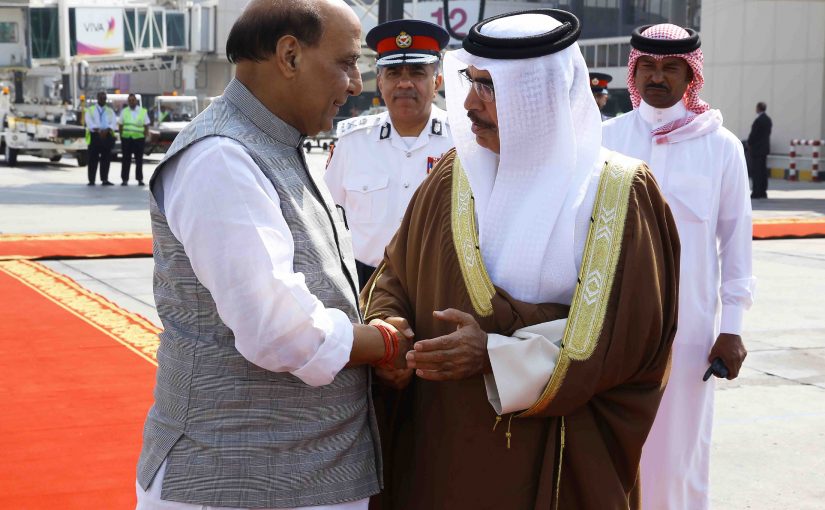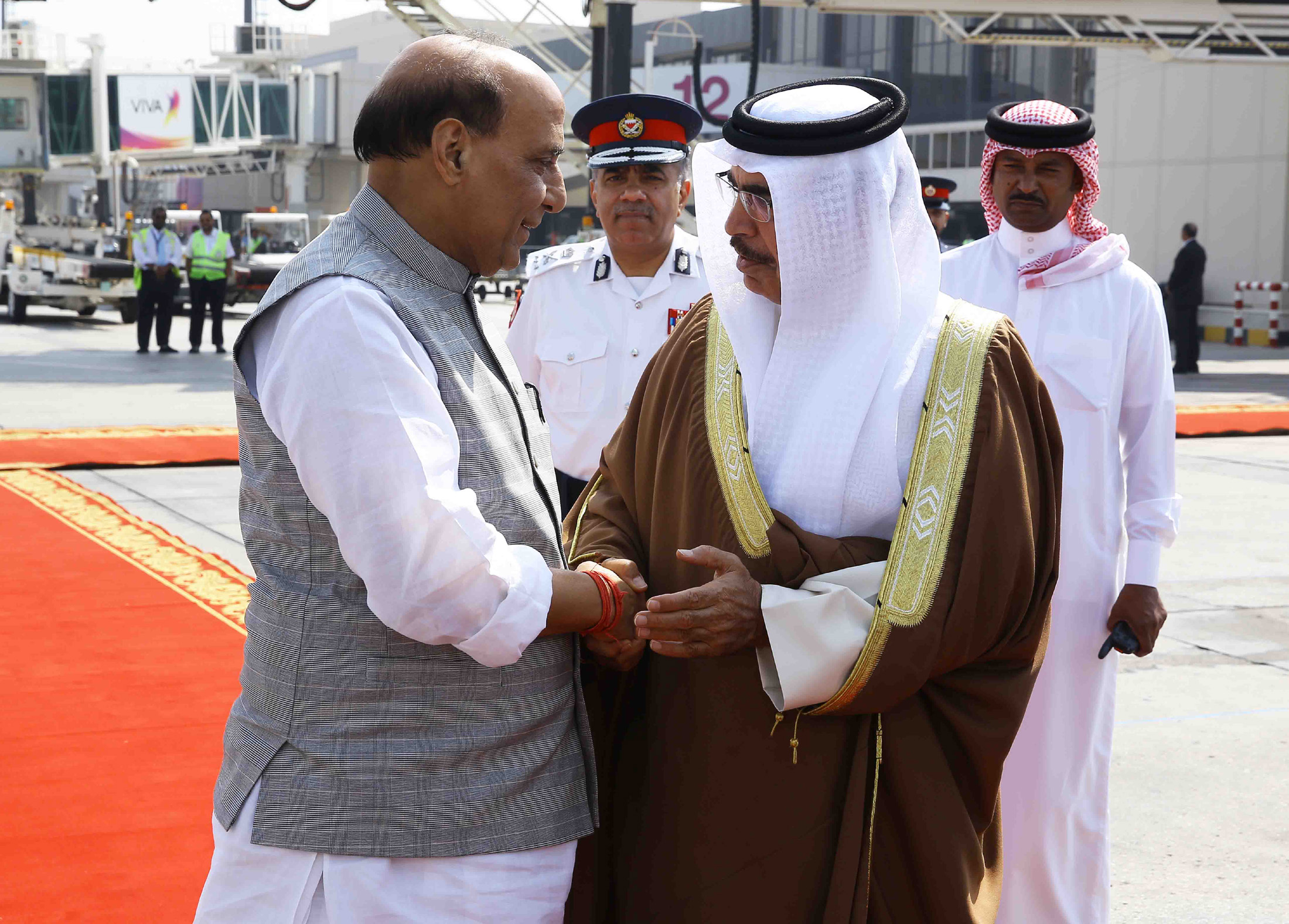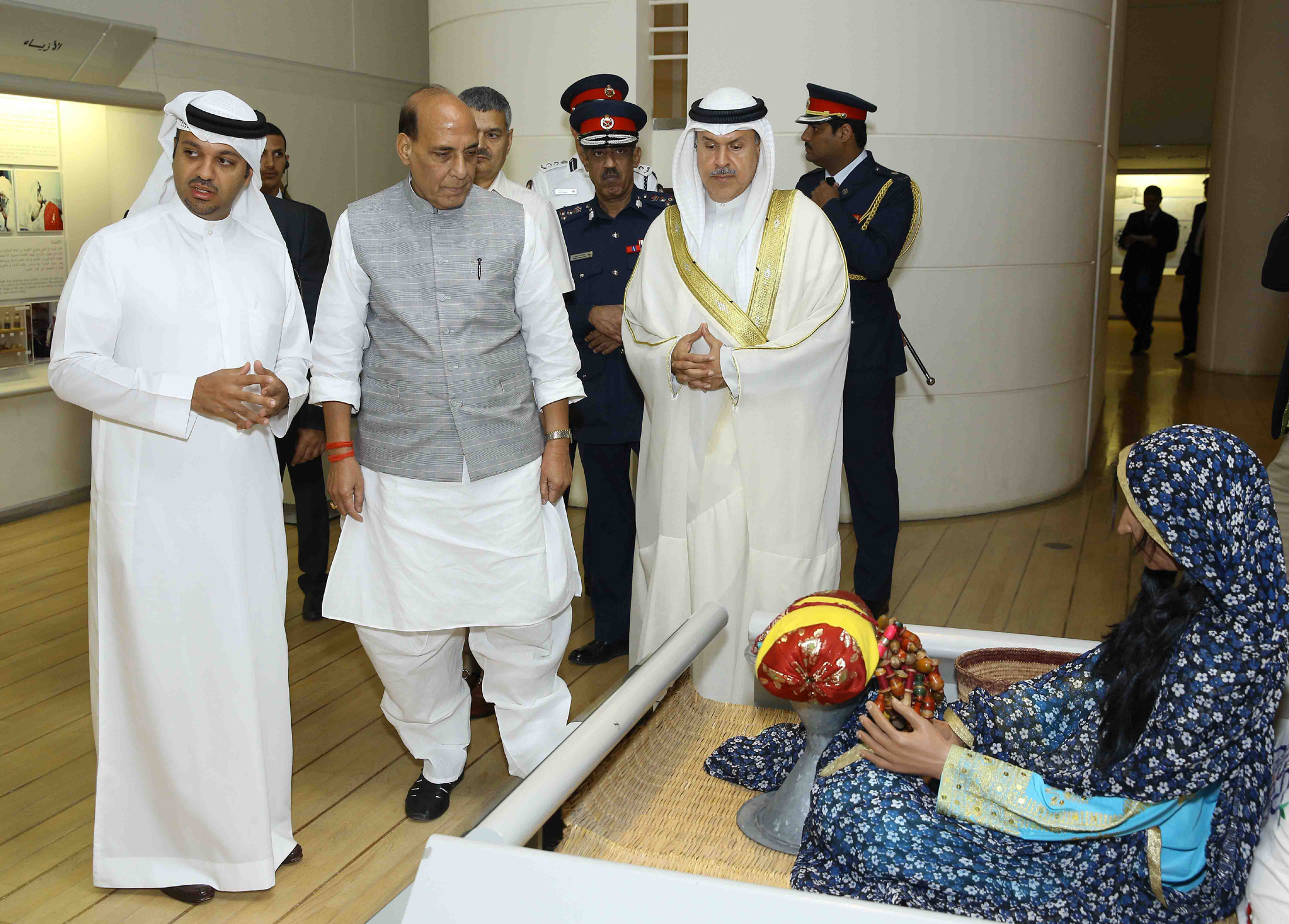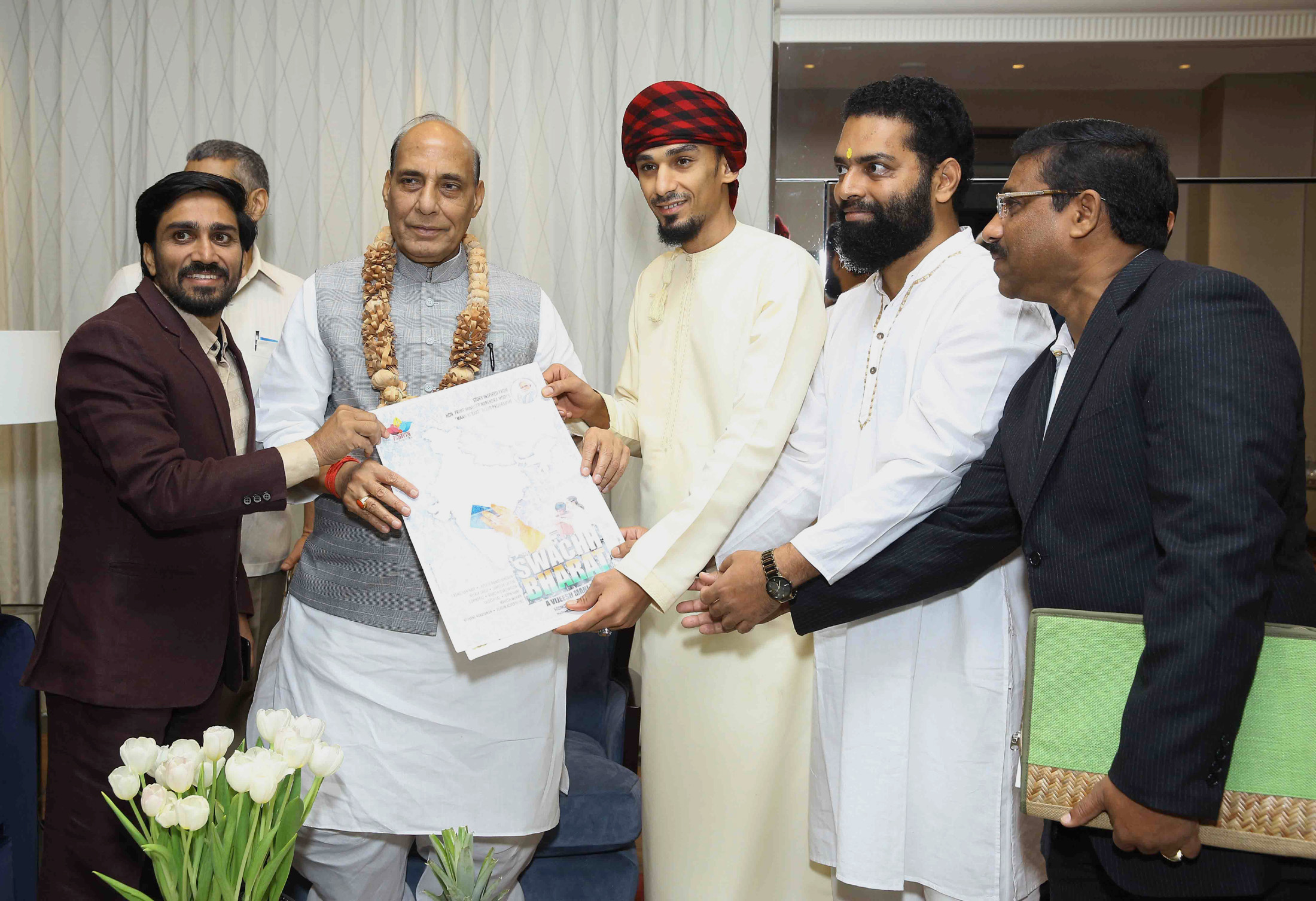
Union Home Minister Shri Rajnath Singh and his Bahrain counterpart held productive session



The Union Home Minister Shri Rajnath Singh, who is on a three-day visit to Bahrain, held extensive talks with his Bahrain counterpart, Minister of Interior Lt. General Shaikh Rashid bin Abdullah Al Khalifa in capital Manama yesterday.
The two sides held a productive session, in which the Bahrain Interior Minister welcomed the Union Home Minister and his delegation with an opening speech. Lt. General Shaikh Rashid stated that Bahrain has throughout history been a link between East and West. He also discussed Bahrain’s special relationship with India due to the large Indian community in the Kingdom. He added that Bahrain is a tolerant, peaceful and open country.
Lt. General Shaikh Rashid also invited Shri Rajnath Singh to visit temples and community centres that reflect the diversity of Bahraini society. Lt. General Shaikh Rashid said Bahrainis and Indians have lived together for generations and encouraged additional development in the ties between the two governments.
Lt. General Shaikh Rashid hailed the first meeting of the Bahraini-Indian Joint Steering Committee as part of the agreement signed between the two sides on counter-terrorism to reinforce security cooperation, especially regional terrorism issues. He highlighted that Bahrain has experienced terrorist acts that caused loss of life and horrific injuries and damage to infrastructure.
The Bahrain Interior Minister said: “We look forward to working together in the fight against terrorism and in strengthening our mutual and regional security. He said the Joint Steering Committee should look at how we can work together to address challenges and to follow up the progress of the agreed decision through exchange of visits and expertise and working to achieve common goals.”
The Union Home Minister expressed thanks and appreciation to the Bahrain Interior Minister, hailing the historical ties between the two friendly countries that are based on love and peace. Shri Rajnath Singh highlighted during the meeting that Bahrain is a civilised and open society that promotes unity and co-existence. He said mutual visits will develop bilateral ties. He also stated that terrorism is a threat to the whole world and that India is ready to reinforce joint counter-terrorism cooperation with Bahrain.
The two sides agreed that the historical visit of the King of Bahrain to India in February 2014 built a basic foundation toward a strong partnership between the two countries, as well as the creation of opportunities to develop bilateral relations in various sectors.
The two sides also agreed that the exchange of high level visits has contributed to the implementation of important agreements between the two countries. They discussed the visit of the Bahrain Interior Minister to India in December, 2015 that included the signing of the cooperation agreement on international counter-terrorism and trafficking of narcotics, psychotropic substances and chemical precursors.
They agreed on their strong stances against all forms of terrorism, saying terrorism is a hazard to all countries and communities. They rejected the linking of terrorism to any race, religion or culture. They agreed that a terrorist in one country cannot be glorified as freedom fighters by another, and the two sides called upon all states to reject the use of terrorism against other countries, to refrain from interfering in the internal affairs of the state, and to fight terrorist infrastructure whenever it exists.
The two sides also agreed to actively implement the counterterrorism agreement for which a joint committee was formed that held its first meeting in the sideline of the visit. They decided to hold regular committee meetings, in accordance to the clauses of the agreement.
The two sides agreed to reinforce cooperation in exchange of information on ongoing terrorism-related investigations, exchange of information of ongoing organised crime investigations, including terrorism and drug trafficking, determine and exchange information on terrorism financing and organised crime sources and confiscation of terrorism money in accordance to the laws of both countries, study youth extremism and the use of the internet and how to tackle the issue, further cooperation in e-security and fight money laundering.
They also agreed to promote participation in training courses and seminars that are held by the two countries for security officials to exchange expertise on crime fighting and other unconventional threats. They welcomed cooperation in anti-human trafficking and the fight against emerging security threats of the two countries. The two sides agreed to continue high level communication to reinforce security cooperation.